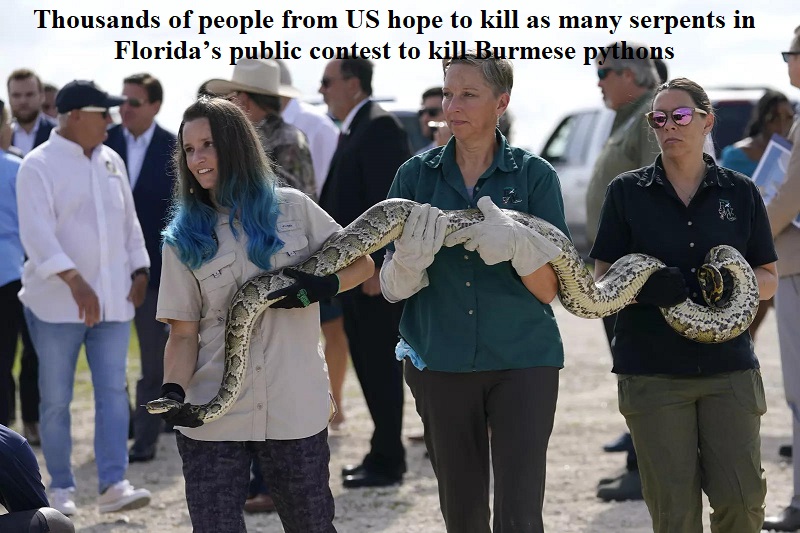
In Florida’s unusual public contest aimed at killing Burmese pythons, thousands of people from the United States and around the world are participating with hopes of eliminating these massive serpents.
Jake Waleri, a 22-year-old Naples native and University of Ohio student, expressed his enthusiasm for participating in the contest during his summer break. He has knowledge about the invasive Burmese pythons, which have taken over the Everglades and caused significant damage to Florida’s natural habitat.
Waleri developed an interest in python hunting after watching professional hunters on television, and he started hunting the snakes himself two years ago. Last year, he took part in the state’s annual python hunting contest called “Florida Python Challenge,” but he dropped out midway as he fell behind in the rankings. This year, he aims to win the competition. The Florida Python Challenge attracts participants from various countries, enticed by the prospect of fame and fortune, including a prize money of around $30,000.
Waleri, along with his cousin known as the Glade Boys, has a plan to hunt snakes every night once the contest begins on August 4. They will carry energy drinks and bug spray for the 10-day marathon contest. Additionally, they will have chest-high waders for water entry, tape to seal the python’s mouth before killing it, and a snake stick to move venomous snakes away from roads to prevent accidents.
The contest is considered crucial by local conservationists to control the negative impact of Burmese pythons on Florida’s Everglades. The region is home to the largest subtropical wilderness area in the country and the largest mangrove ecosystem in the Western Hemisphere. Described by UNESCO as “a river of grass flowing imperceptibly from the hinterland into the sea,” the Everglades supports a diverse array of flora and fauna.
The eradication of these invasive pythons through the contest aims to protect the unique and fragile ecosystem of the Everglades, and participants like Waleri are determined to play their part in this important conservation effort.

Post Your Comments